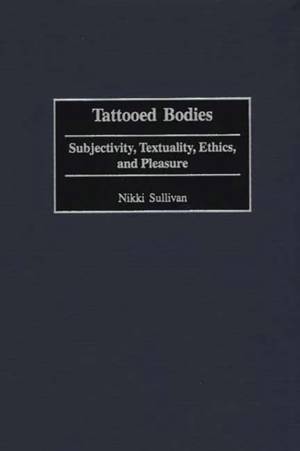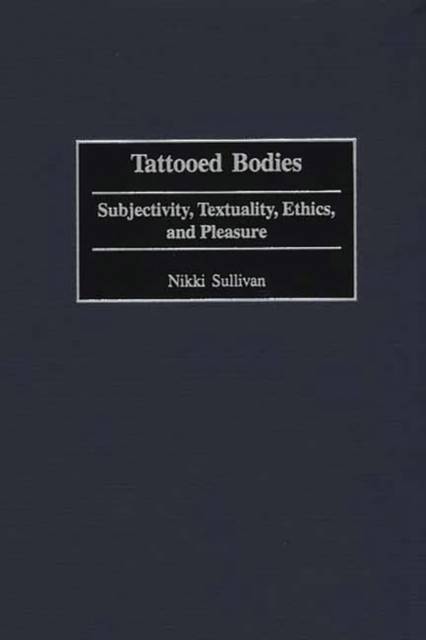
- Afhalen na 1 uur in een winkel met voorraad
- Gratis thuislevering in België vanaf € 30
- Ruim aanbod met 7 miljoen producten
- Afhalen na 1 uur in een winkel met voorraad
- Gratis thuislevering in België vanaf € 30
- Ruim aanbod met 7 miljoen producten
Omschrijving
Drawing on the works of a number of postmodern theorists, this study suggests that the tattooed body is symptomatic of a general process of marking and being marked and is a social production of identity and difference. Shifting the focus away from what the tattooed body means to what it does, this work analyzes how it functions and what effects it produces. It challenges the ways in which identity and difference are discursively produced, particularly in psychological, criminological, and counter-cultural discourses. The writings of such theorists as Foucault, Levinas, Barthes, and Lingis are scrutinized to reveal how their discourse interprets the tattooed body as simply an aberrant threat to the body or simply a positive counter-cultural challenge. These theories are supplanted with this unique approach to notions of subjectivity, textuality, ethics, and pleasure and to the relationships among them.
This examination of the role of the body in social, political, and ethical relations will attract scholars from a number of disciplines, including cultural studies, gender studies, philosophy, visual arts, sociology, and English. It will also appeal to critics and practitioners in contemporary practices of body modification.Specificaties
Betrokkenen
- Auteur(s):
- Uitgeverij:
Inhoud
- Aantal bladzijden:
- 216
- Taal:
- Engels
Eigenschappen
- Productcode (EAN):
- 9780275966751
- Verschijningsdatum:
- 30/09/2001
- Uitvoering:
- Hardcover
- Formaat:
- Genaaid
- Afmetingen:
- 168 mm x 234 mm
- Gewicht:
- 526 g

Alleen bij Standaard Boekhandel
Beoordelingen
We publiceren alleen reviews die voldoen aan de voorwaarden voor reviews. Bekijk onze voorwaarden voor reviews.











